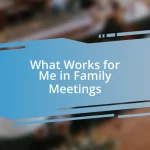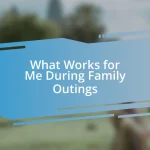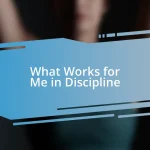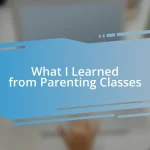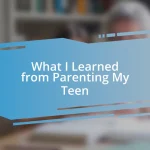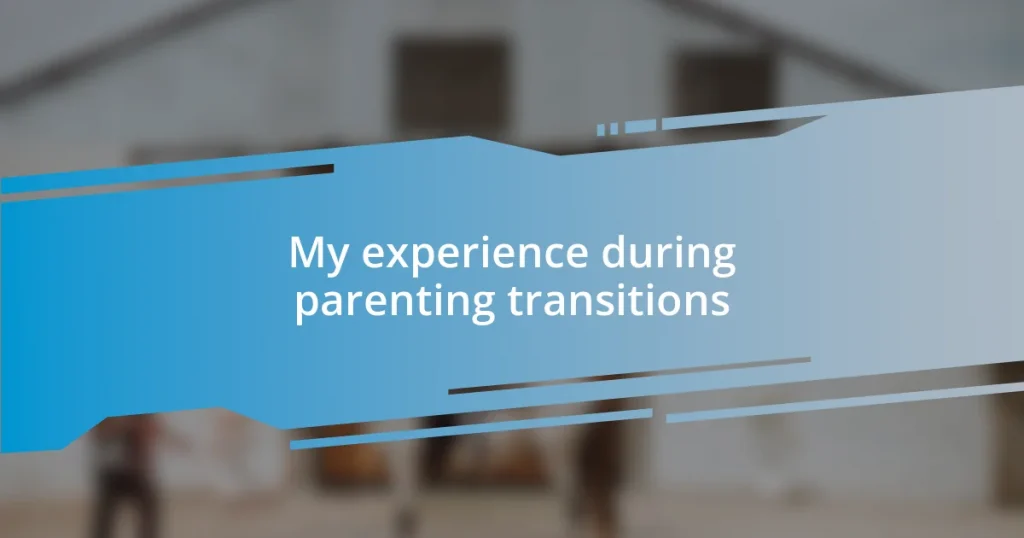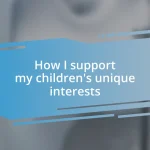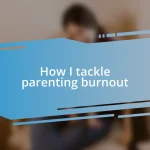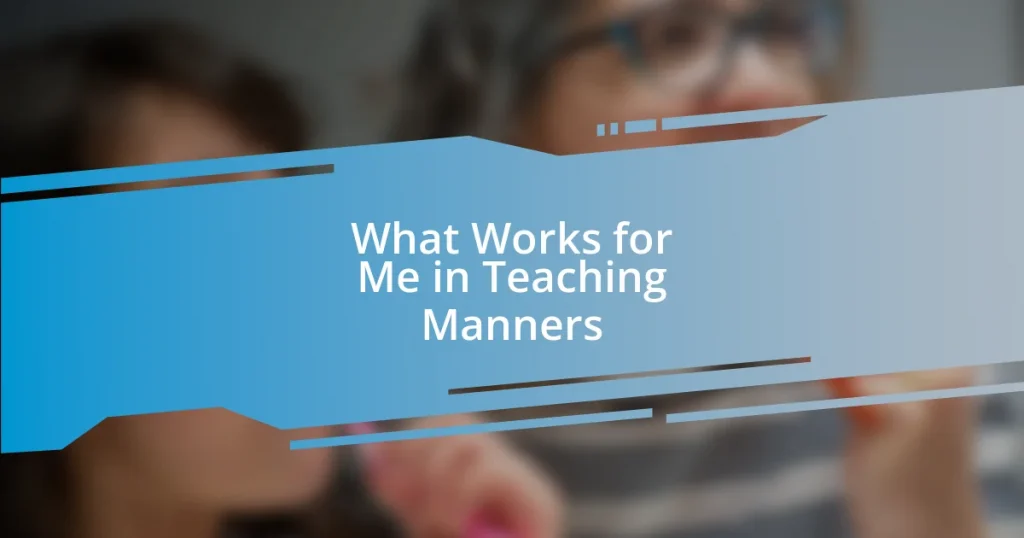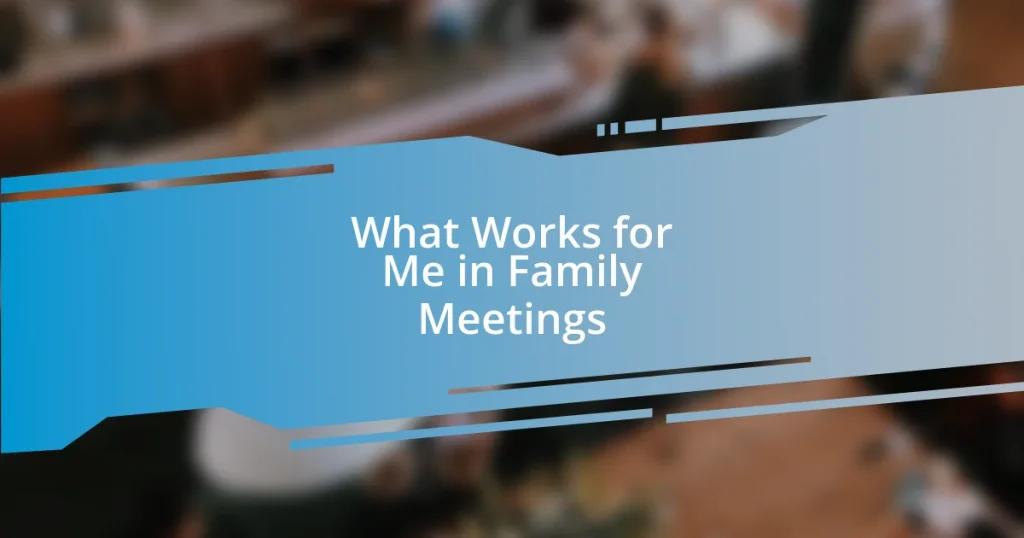Key takeaways:
- Parenting transitions evoke a mix of emotions, highlighting the importance of acknowledging fears, identity shifts, and the bittersweet nature of milestones.
- Building a strong support system with friends, family, and professionals can ease the challenges of parenting transitions and foster a sense of community.
- Effective communication and self-care practices, along with reflecting on personal growth, are vital for navigating the ups and downs of parenting.
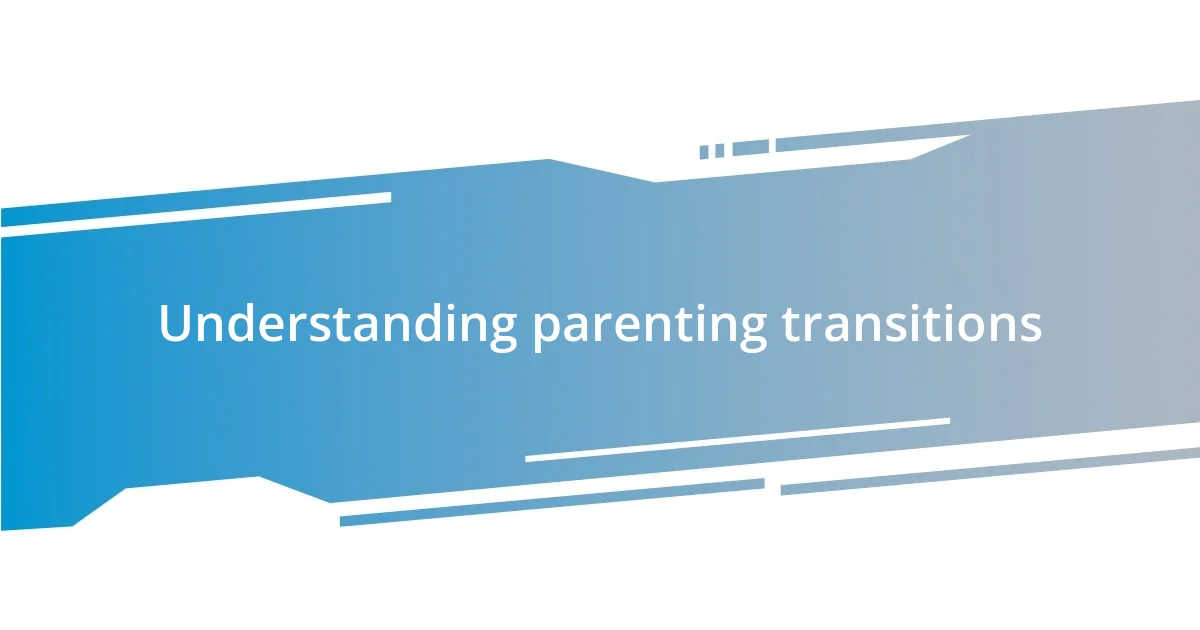
Understanding parenting transitions
Parenting transitions can feel like navigating a series of unexpected waves; one moment you’re riding high, and the next you’re bracing against a sudden shift. I remember the first time my child started school – it felt like losing a piece of my identity. How could I have thought that moving them into that classroom would mean letting go of my role as their constant companion?
Each transition, whether it’s starting school, entering adolescence, or preparing for independence, brings its own set of challenges and joys. The bittersweet feeling I had when my daughter learned to ride a bike was a perfect example; I was proud yet anxious about her newfound freedom. Have you ever watched your child take a step towards independence and felt that tug at your heart?
Understanding these transitions means acknowledging that each change is an opportunity for growth, not just for our children but for us as parents. I found that embracing these shifts with open arms allowed me to learn alongside my kids. Imagine what we can discover about ourselves during these pivotal moments!
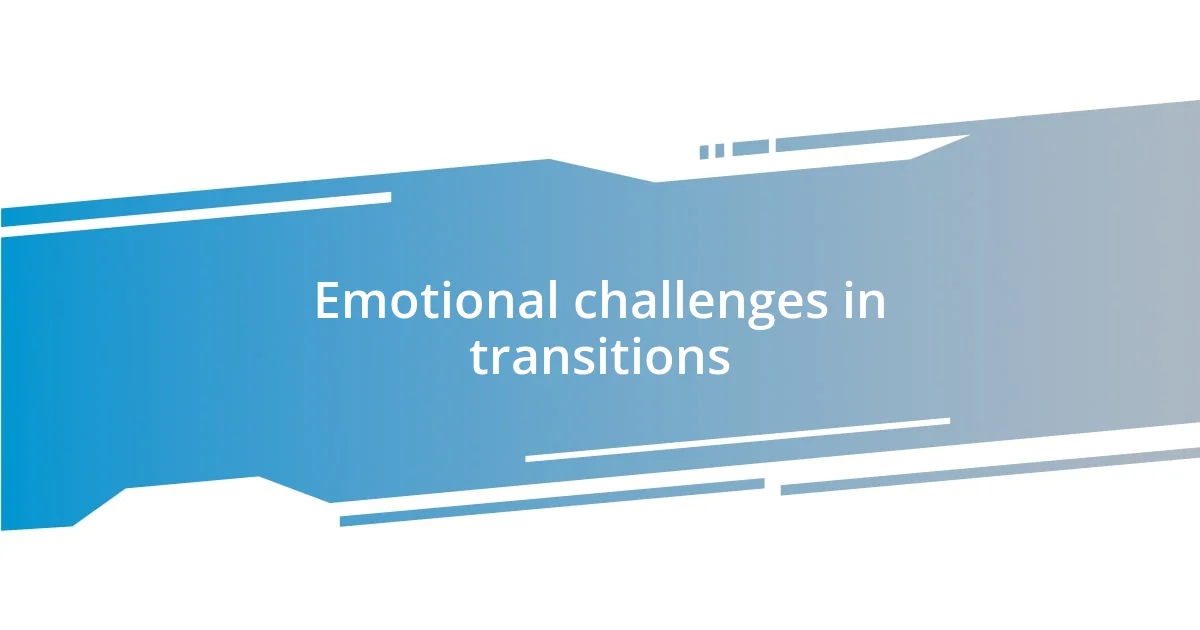
Emotional challenges in transitions
Navigating emotional challenges during transitions can feel overwhelming at times. I recall the night before my eldest’s first day of school, my mind raced with concerns. Was I ready for this change? Would she miss me? Those feelings of uncertainty crept in like shadows, making it hard to enjoy the moment. It’s essential to recognize that these emotional responses are entirely normal and even expected.
Here are some common emotional challenges parents face during transitions:
- Fear of Losing Connection: The worry that your child will draw away as they become more independent can be heart-wrenching.
- Identity Shift: I felt adrift when my primary role as a caregiver started to shift, leaving me questioning who I was outside of that role.
- Anxiety About New Experiences: Watching my child face new situations brought about my own anxieties; I couldn’t help but wonder how they would fare.
- Sadness Over Milestones: While celebrating achievements, I often found myself feeling a pang of sadness, reminiscing about how quickly time passes.
- Doubt and Guilt: It’s easy to feel guilty, wondering if I was preparing them adequately for life’s challenges.
These emotions can ebb and flow, much like the transitions themselves. Acknowledging and leaning into these feelings has helped me embrace the ebb and flow of my parenting journey.
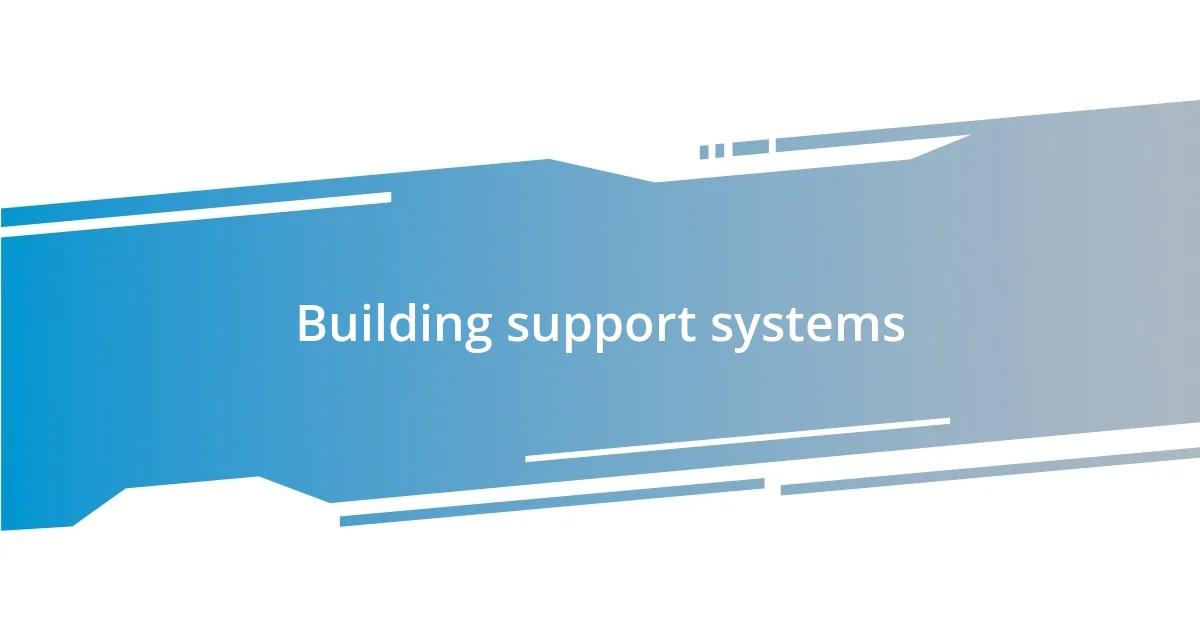
Building support systems
Building a solid support system was essential for me during various parenting transitions. I vividly recall seeking out fellow parents when my child moved to middle school. Sharing our experiences over coffee not only eased my anxiety but also connected me with others comfortably navigating similar waters. Creating this network allowed us to lean on each other, offer advice, and celebrate the little victories together. Have you tried reaching out to your community? It can be a life-saver!
Finding the right people for your support system is a journey in itself. I remember volunteering at my child’s school, which led me to forge connections with parents who shared my values. Those friendships grew to be an invaluable resource. It’s incredible how camaraderie can bloom in unexpected places, sometimes starting with a simple hello or shared frustration about homework! This blend of support made me feel less isolated on my parenting path.
Moreover, engaging with professionals can significantly bolster your support network. During a particularly challenging phase, I reached out to a parenting coach. The personalized insights helped me to view my parenting transitions in a new light. It’s about finding what fits your needs—whether it’s a formal relationship with a specialist or casual chats with trusted friends. Surrounding yourself with understanding individuals makes the journey far more manageable.
| Support System Type | Benefits |
|---|---|
| Friends and Family | Emotional support, shared experiences |
| Parenting Groups | Collective advice, social connection |
| Professionals (coaches, therapists) | Expert insights, tailored guidance |
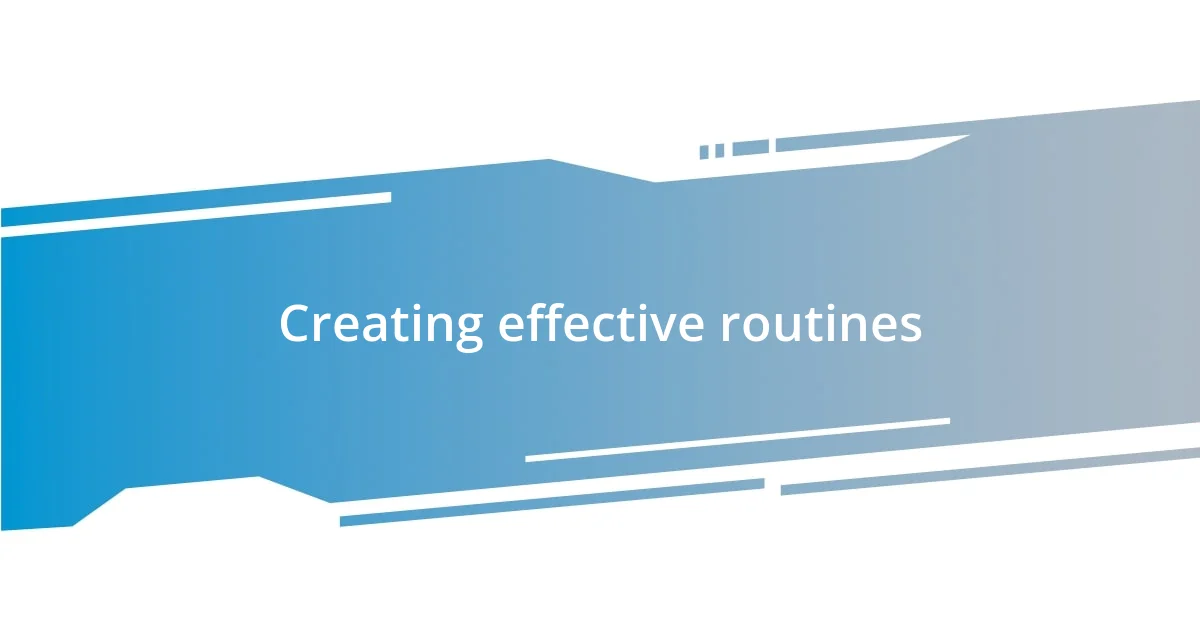
Creating effective routines
Creating effective routines has been transformative for my family, especially during transitions. I remember the first few chaotic mornings after my youngest started kindergarten. Everyone seemed to be running around, searching for shoes and breakfast. It quickly became clear that we needed a structured routine to avoid the morning madness.
One of the most effective strategies I implemented was a nightly preparation ritual. Each evening, we would lay out clothes and pack school bags together. I can’t tell you how much calmer we felt! It was like a mini-celebration of readiness, allowing us to bond and discuss the day ahead. Have you ever noticed how small changes can yield significant benefits? This routine not only simplified our mornings but also built anticipation for the school day.
I also learned the importance of including my children in creating the routine. Their involvement made them more accountable and invested in the process. We sat down together and mapped out our weekly schedule, incorporating time for homework, chores, and family activities. It transformed our household dynamic—I felt less like a drill sergeant and more like a coach guiding a team. By establishing routines that everyone embraced, our home became a space of support and shared responsibility.
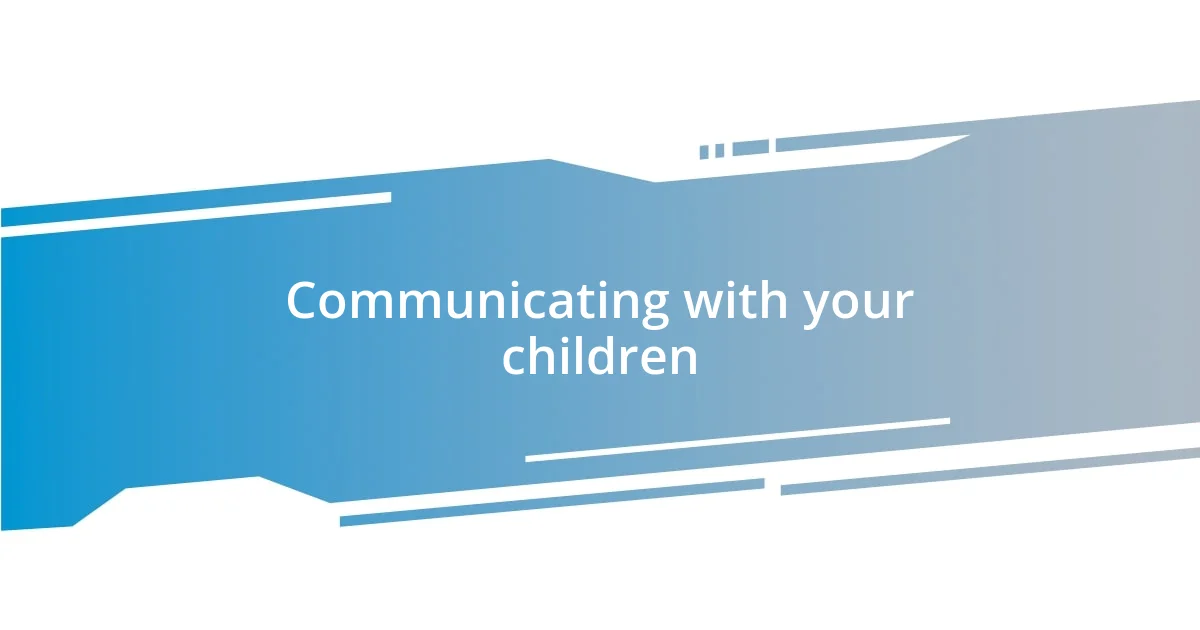
Communicating with your children
Communicating with your children can sometimes feel daunting, especially during significant transitions. I remember when my preteen first expressed feelings of unease about starting a new school. Sitting on the floor of their bedroom, we talked openly about their fears, and I found myself not just listening but validating their emotions. Have you ever realized how much it helps to just be present during these moments? That simple act of connection opened a door for deeper conversations in the future.
I’ve also discovered that the way we communicate can shape our children’s willingness to share. When faced with potential conflict or stress, I often approach my kids with an open-ended question. For instance, instead of asking, “Did you have a good day?” I might say, “What was one interesting thing that happened today?” This shift encourages them to reflect more deeply and engage in a meaningful dialogue. I can’t stress enough how rewarding it feels when they light up, eager to share.
Moreover, I’ve learned the importance of modeling vulnerability. During a particularly tough week, I shared my own challenges with my child, mentioning how I felt overwhelmed and needed their support. It nurtured a sense of empathy between us that’s priceless. Sometimes I wonder, what if more parents spoke openly about their struggles? Opening the lines of communication not only fosters trust, but it also reassures our children that they’re not alone in navigating life’s ups and downs.
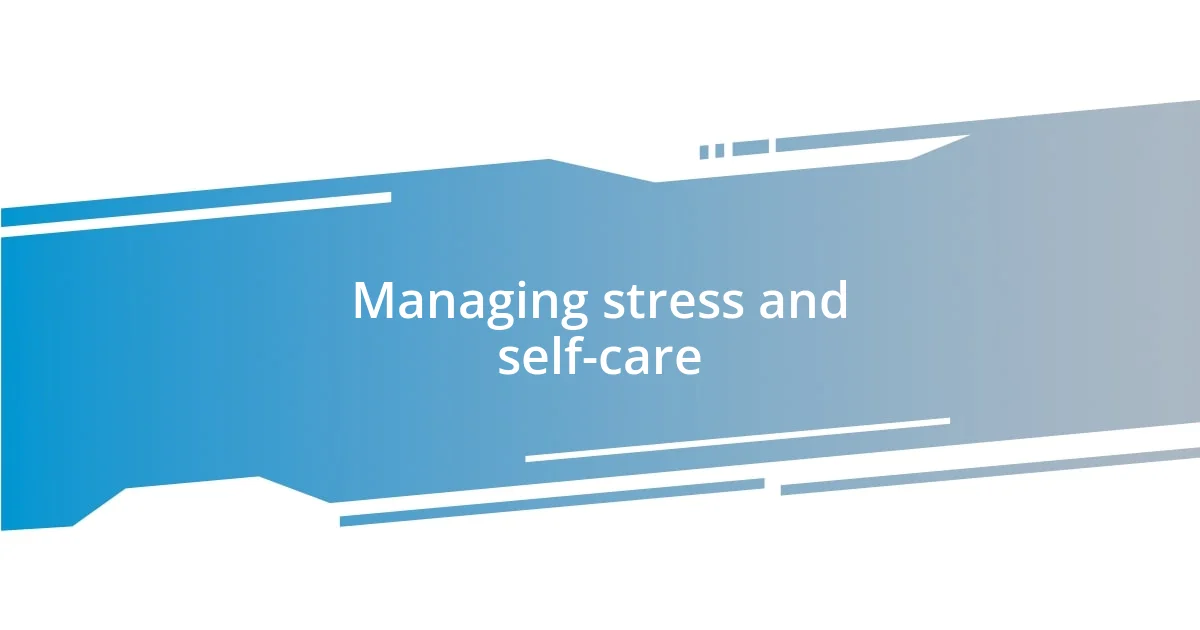
Managing stress and self-care
Managing stress while balancing parenting is crucial, especially during transitions. I vividly remember a particularly overwhelming day when I felt pulled in every direction. My go-to solution became carving out just ten minutes for myself each morning. I would brew a cup of tea and sit quietly, allowing my mind to settle before the chaos began. Have you ever tried finding those small pockets of peace? It made a world of difference; I felt more centered and ready to tackle whatever came my way.
Self-care often takes a backseat when you have kids, but I learned the hard way that it’s necessary for my well-being. I began incorporating short walks into my daily routine, which not only helped alleviate stress but also cleared my head. On one memorable day, as I strolled through the neighborhood, I felt a spark of joy when I spotted blooming flowers. Those moments remind me that self-care doesn’t need to be grand or time-consuming; sometimes, it’s simply about appreciating life around us.
I’ve also realized the importance of reaching out for support. One evening, feeling particularly drained, I called a friend who also had young kids. We exchanged stories about the day’s challenges and even shared a laugh about our parenting mishaps. Isn’t it comforting to know that you’re not alone in this journey? These conversations not only lighten the emotional load but also rekindle friendships that fuel my spirit. Each connection we nurture can provide a vital lifeline—a crucial aspect of managing stress and embracing self-care as parents.
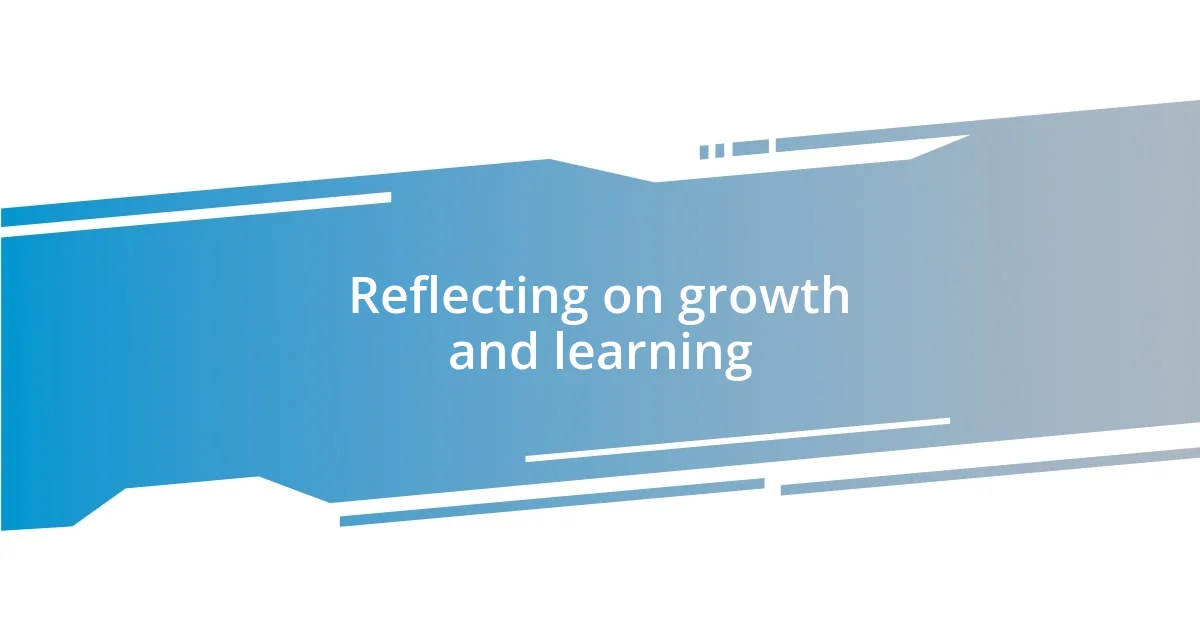
Reflecting on growth and learning
Reflecting on the growth I’ve experienced as a parent, I can’t help but marvel at the unexpected lessons that arise during transitions. For instance, when my child faced a significant change, I found myself analyzing my own emotional responses. It was a revelation—how our children’s growth often mirrors our own. Have you noticed how much understanding we gain about ourselves through our kids’ experiences? Those moments became a catalyst for self-reflection, revealing vulnerabilities I had long overlooked.
As I navigated various parenting challenges, I embraced the notion that growth comes from discomfort. One afternoon, after a particularly challenging day, I reluctantly shared my feelings of frustration and confusion with my child. Their reaction was not what I expected; instead of retreating, they offered a perspective that opened my eyes to alternative ways of thinking. Isn’t it fascinating how the teaching and learning roles can shift so effortlessly in parenting? This dynamic exchange reminded me that we’re all growing together, continuously learning from one another.
When I think about the overall journey, I realize that embracing these transitions has cultivated resilience within me. I remember after a rough school year, sitting down with my child to reflect on the hurdles we both faced. I asked them what they learned through the ups and downs. To my surprise, they shared insights that not only highlighted their growth but also encouraged me to rethink my own approach to life’s challenges. How often do we take the time to learn from tough situations? Recognizing the lessons learned during these transitions is essential for both parents and children alike, fueling our ongoing journey of growth and development.



